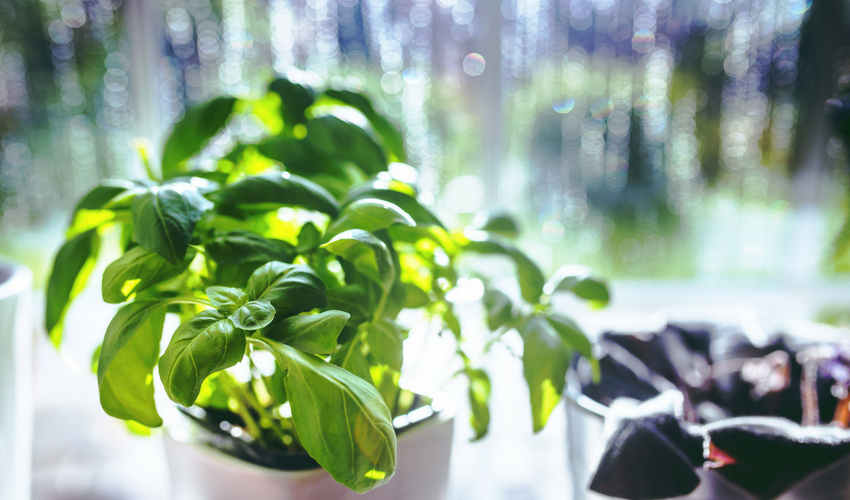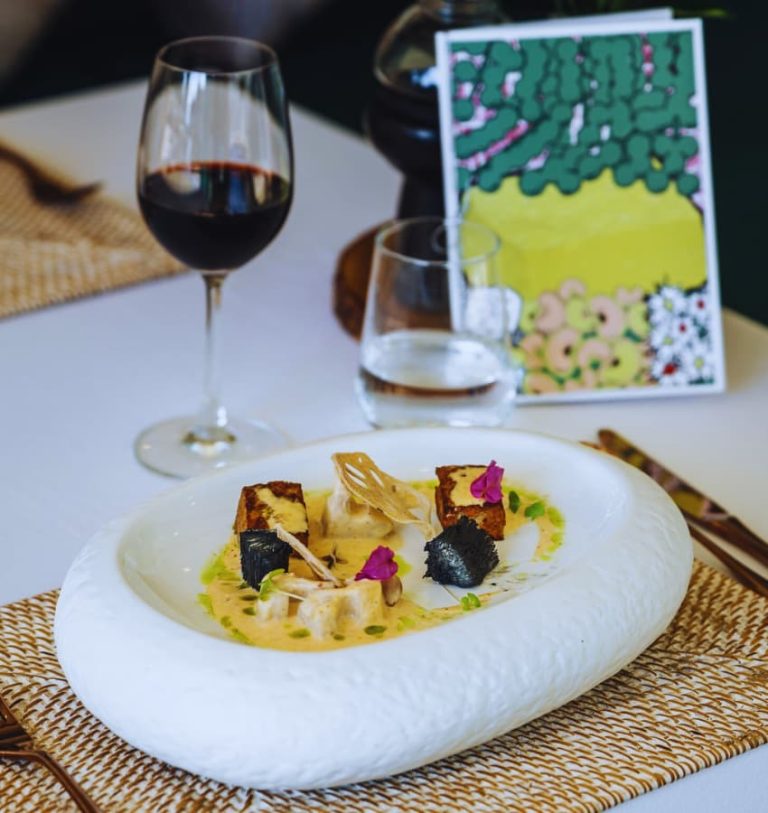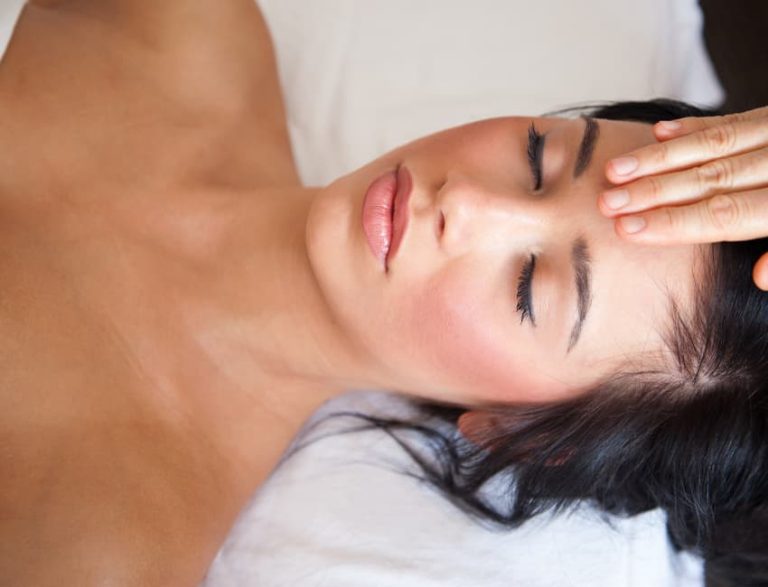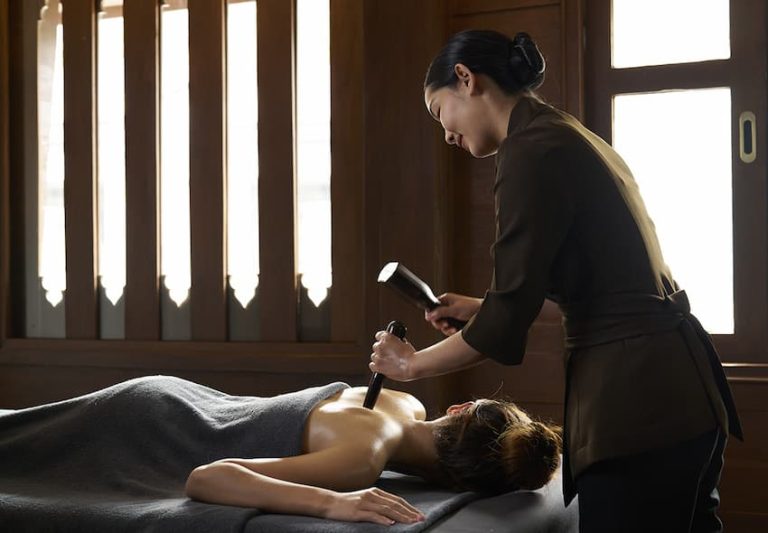Thailand is the world of herbs. Thai cuisine alone boasts an impressive list of herbal ingredients, but the use of herbs extends far beyond seasonings for food. Herbs add flavour, but they also add an impressive array of health benefits, and they can be just as powerful when applied externally as they are when taken internally. From meals to medicine to massage, herbs and their strong and sweeping effects are as common in Thailand as air itself.
Thai Herbs
The most basic use for herbs is in the cuisine, and an extensive list of herbs and plants forms the Thai chef’s stock of ingredients. The fourteen examples below are only a small sample of this list.
- Sweet basil (horapa) and holy basil (kaprao): Neither of these varieties of basil is exactly like the basil used in Western cuisine, but the most similar is sweet basil. While curry claims this kind of basil as an ingredient, fish and meat dishes include the much spicier holy basil.
- Lemongrass (takrai): The name is a fairly accurate description of the herb itself, in both its grass-like appearance and lemony taste and smell. Soups and curry pastes often include it as an ingredient.
- Galanga (kha): Evolving with age from a lemon-like flavour to a taste reminiscent of pepper, galangal is a relative of ginger. In its early phases, you can find it in soups, while maturity makes it more useful for curry.
- Finger root (krachai): Also called “lesser galangal,” finger root shares some of the characteristics of the more mature galangal plant, mixing in a hint of ginger as well. Curries and fish are dishes best suited for its use.
- Ginger (khing): Thai cuisine has many uses for the sweet and spicy flavours of ginger, adding it not only to desserts, but also to drinks and marinades.
- Bean sprouts (thua ngok): Growing from mung bean seeds, bean sprouts often come to the table uncooked and add flavour and texture to stir-fry and soup.
- Lotus root (raug bua): Lotus root grows underwater. With a flavour like cocoanut, it can stand alone as a vegetable or serve as an ingredient in desserts.
- Taro root (puak): Although inedible when uncooked, taro root tastes something like a potato, but with greater depth of flavour. Like the potato, too, this food often serves as a snack, but unlike the potato, it can also be a dessert.
- Mint (saranae): Mint is an ingredient of teas and salads, especially when used fresh.
- Turmeric (khamin): A common curry staple, turmeric frequently gives Thai dishes their yellow colour. Meat marinades also frequently include it as an ingredient.
- Bay leaves (bai krawan): This herb, though related to the bay leaf of the West, is not the same. Thai chefs use it to enhance their soups and even turn it into tea.
- Cardamom (look krawan): Cardamom is a well-worked element of Thai cooking, finding its way into dishes both sweet and savoury with its strong but comforting taste.
- Coriander (phak chi): Also known as “cilantro,” coriander has a place in Thai cooking from root to seed. Curries benefit from the leaves, seeds, and roots, while marinades incorporate both roots and stems.
- Wellness Retreats and the Alchemy of Herbs
- Benefits of a Wellness Retreat
- Digital Detox for Your Health
- Holistic Herbal Holidays
- Discover Holistic Wellness Retreats in Hua Hin
Herbs, Thai Food and Health
Thai food has a reputation for beneficially affecting well-being and health. Being so heavily composed of herbal ingredients, it is essentially a cuisine of natural medicine. Every herb has its effect, and in some cases, several operate together for rather startling results.
Thai herbal ingredients act on the various systems of the body to improve health, relieve symptoms, and prevent illness. For example, lemongrass, galangal and ginger are all beneficial to the stomach, dealing with pain, flatulence, vomiting, and indigestion. Similarly, taro root and bay leaves both handle blood sugar issues, while sweet basil and cardamom help the cardiovascular system.
Some herbs and plants, such as bean sprouts and lotus root, are simply nutrition powerhouses; overflowing with calcium, magnesium and potassium, they also contain a number of other vitamins and minerals. Likewise, the iron in cardamom serves as a potent treatment for anaemia and similar iron deficiencies, and cardamom, in company with sweet basil, also contains vitamin C.
Turmeric is an anti-inflammatory. Sweet basil is anti-bacterial. Lemongrass and coriander combat fungus, and turmeric and bay leaves contain anti-oxidants. It seems the list of the benefits of Thai herbs is endless. If there is a problem, there is probably an herb to alleviate, cure or prevent it.
One of the most amazing results of Thai herbal cooking is the soup Tom Yum Gung. Loaded with lemongrass, galangal, and coriander, its flavour is so superb as to make it excel in popularity in Thai cuisine. Besides being a treat for the taste buds, Tom Yum Gung has proved, with science to back it, to be a powerful treatment and preventative for cancer. In fact, its potency is so great that the soup is under scientific analysis for the sake of revealing and making independently accessible the secret of its abilities.
External Use of Herbs
Cooking is not the only way Thai culture makes use of the powers of herbs. There are plenty of external applications that enable the individual to absorb their benefits, whether he or she eats Thai food or not.
Lemongrass, for example, is an excellent remedy for dandruff and for growing hair when the juice of the stalks is massaged into the scalp. Similarly, rashes receive treatment from a paste of ground turmeric.
Aromatherapy is one of the most common ways to use Thai herbs. The varying scents of the herbs have equally varying effects. For example, mint is perfect for refreshment and stimulation, while cardamom can relieve depression. Lemongrass, on the other hand, soothes stress and headaches.
Herbal inhalers are not at all an uncommon phenomenon. Depending on the herb, the users can receive treatment for stress and anxiety, colds and congestion, headaches, and even asthma. A popular practise is the inhalation of lavender oil, which has salutary effects on blood pressure and heart rate.
This aromatherapy plays an essential part in steam baths. The Thai theory regarding steam baths is that the steam will become laden with the essences of the heated herbs used, and then this steam, while opening the pores and releasing toxins, will carry the essences to the skin for absorption. The particular kinds of herbs can vary, but the most common ones include lemongrass, turmeric, galangal, ginger, and basil.
Thai Massage
Thai traditional massage, known as Nuad Boran, incorporates herbs as an important part of the massage experience. This type of massage differs from Western massage in many points, not least amongst them being the complexity of the massage itself. Reflexology, or the application of pressure to the hands and feet to positively affect the body, and acupressure, or therapeutically pushing on different points of the body, join with yoga to provide a thorough, complete, whole-body experience.
Besides manipulating the client’s body to form yoga postures, the practitioner pushes, pulls, and slaps to try to open up what are known as Sen Sib lines, or energy channels, and thereby relieve the negative physical feelings which lead to illness. Balance and freely flowing energy are the goals, and the physical effects of achieving these goals include relief from pain, cardiovascular benefits, and prevention of future problems.
Another layer of therapy enters with the use of herbal compresses. Using a variety of motions, the practitioner applies steamed herbs tied in a muslin sack to the body of the client. Thus, the herbs transfer those essential oils released by the heat to any points where there is pain.
Nuad Boran seeks to enhance the spiritual as well as the physical. With mindfulness, which is achieved through focused breathing, as well as love and compassion between practitioner and client, Thai massage elevates the experience from a purely bodily one to one which enriches the heart and mind. The Thai massage is therefore a holistic treatment which can be beneficial to all the parties involved.
The herbs of Thailand are more than food. They are a dose of health and well-being. Whether they are part of the cuisine or part of a massage, they serve as medicine, sometimes curative, but primarily preventative. Acting on the mind as well as on the body, they satisfy the taste, regulate the body, and do all they can to form a happy, healthy, peaceful person.
Join a retreat in Hua Hin, and come experience the nature inspired wellbeing with us.
Related Articles:
AYURAH SPA & WELLNESS CENTRE
183 Moo 4, Pak Nam Pran,
Pranburi, Hua Hin
77220 Thailand
T: +66 (0) 32 618 300












